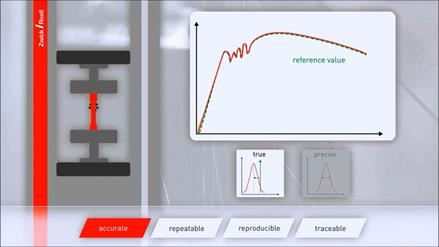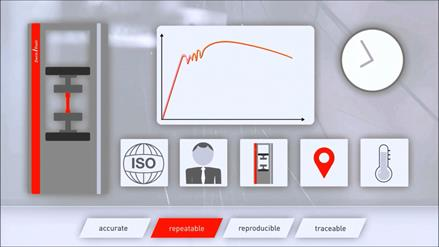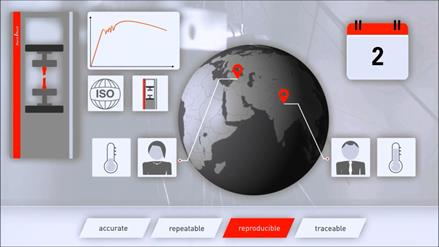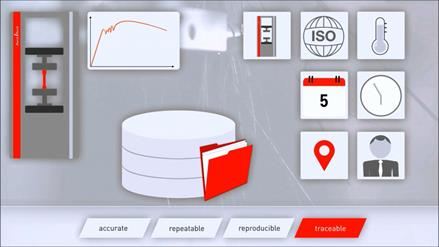In today’s environment of fast technological advancement, to attain a competitive advantage, engineers and designers are routinely pushing the limits of physics in developing enhanced and new materials.
Globalization has simultaneously resulted in international supply chains and the separation of production facilities from research.
Therefore, it is absolutely crucial for both R&D and quality assurance that test results are repeatable, accurate, traceable, reproducible and ultimately, reliable.

Image Credit: ZwickRoell GmbH Co. KG
Reliable Test Results Defined
Whether designing completely custom solutions or performing highly standardized tests, ZwickRoell looks at each challenge in materials testing with the same motivation – to achieve the most reliable results possible.
To accomplish this they consider the following questions:
- Are the results repeatable?
- Are they reproducible, comparing similar measuring equipment?
- Does the measurement equipment utilized fulfill all regulations and standards required?
- Are the test results truly accurate?
- Is it possible to trace who has done what, when, and how?
Accurate

Image Credit: ZwickRoell GmbH Co. KG
Measurements that are precise and true are accurate
- Precision is the closeness of agreement between individual test results found under stipulated conditions. Meaning individual test results that are close to each other are precise, while individual test results that are not close to each other are not precise.
- Trueness describes the closeness of agreement between the average of individual test results and a reference value. Meaning the result is true when the average value of individual test results is close to the reference value. And not true when there is a large difference between average value and reference value.
Individual test results that are close to each other and in average are close to the reference value, are accurate.
Repeatable

Image Credit: ZwickRoell GmbH Co. KG
Repeatability is precision under repeat conditions
- The same measurement procedure
- The same location
- The same test conditions
- The same measuring equipment
- The same operator
- The repetition of measurements within short intervals of time is the only variable factor
Reproducible

Image Credit: ZwickRoell GmbH Co. KG
Reproducible is precision under reproducible conditions
- The same measurement procedure
- With multiple operators
- Similar measuring equipment
- Under varying test conditions
- Generally at different locations
- Performing measurements over lengthy time periods
Traceable

Image Credit: ZwickRoell GmbH Co. KG
Traceable refers to the full and complete documentation of a measurement result
- How the test result was determined
- Under which conditions
- When was it determined
- Where was the measurement carried out
- Who carried out the measurement

Image Credit: ZwickRoell GmbH Co. KG

This information has been sourced, reviewed and adapted from materials provided by ZwickRoell GmbH Co. KG.
For more information on this source, please visit ZwickRoell GmbH Co. KG